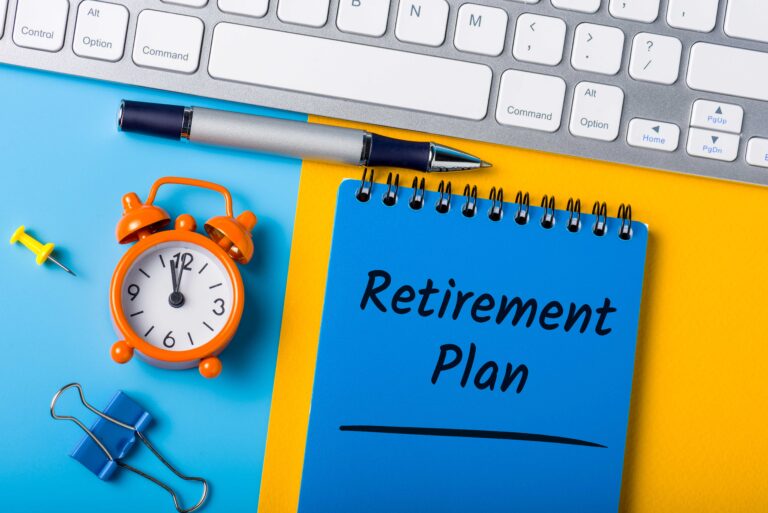
Each major financial decision that we take throughout our lives will have some form of impact on our financial wellbeing. From the decision to purchase a property and take out a mortgage, to changing careers and other life events, such as divorce or receipt of an inheritance, the choices we make will have some impact on our financial future. Perhaps the most crucial decisions, however, need to be taken when we approach retirement, as actions taken at this time can have lifelong implications. This is where tailored and personal advice on the options open can prove highly beneficial in navigating the right course to take.
As we head towards the end of our working lives, thoughts inevitably turn to the level of income that we can look forward to in retirement, and pensions are likely to form a substantial part of your income when retired.
The full rate new State Pension is now £221.20 a week, although you will need to have accrued 35 years of qualifying National insurance Contributions to receive this amount. It is worth checking your State Pension record with the Department for Work and Pensions, as this can identify any gaps in your record that could be filled before reaching State Pension age. This is currently 66 but will rise to 67 for those born after April 1960, with a further increase to age 68 between 2044 and 2046.
Many individuals would prefer not to work until State Pension Age, and this is where careful planning at an early stage can help you assess your options and make best use of private and workplace pensions accrued during your lifetime, which could, in turn, make earlier retirement feasible.
Taking the time to review existing pension arrangements at an early stage can help identify poor performing investment funds, or recognise opportunities to increase pension saving, which could boost the end value of the pension plan as you reach retirement. It could also provide an opportunity to consolidate and rearrange plans, if appropriate, to benefit from cost savings or access the widest range of options when retired.
When taking a defined contribution pension, it is usually the case that 25% of the value will be available as Tax Free Cash. This is the first of many decisions that need to be reached. Some may decide to use the Tax Free Cash payment to cover existing debts or pay for discretionary expenditure. Some plans allow you to draw Tax Free Cash over a period of time, rather than in a single payment. Depending on the retirement strategy adopted, this could be an effective way of generating a tax-efficient “income” through regular Tax-Free Cash payments.
Deciding on how to draw an income in retirement is a key decision that many find daunting. Many choose a Drawdown approach, where the pension fund remains invested, and income is drawn flexibly to suit your needs and objectives. If funds remain invested after you die, these can normally be paid to a nominated beneficiary. The risk with drawdown is that the invested pension fund is fully depleted during your lifetime, and this is where regular reviews of the investment performance and amount of income drawn are important.
Purchasing an annuity, where the remaining pension is exchanged for a guaranteed income for life, is an option that some prefer, given that this provides a degree of certainty. The downside is that the purchase of a lifetime annuity cannot be reversed, and therefore careful consideration of the benefits and drawbacks need to be taken into account.
The final option is to take out the pension value as a single or series of lump sum payments. Taking this option is rarely sensible, as it will leave no ongoing pension income, and could potentially lead to adverse tax consequences.
For many individuals, pension income is built from several sources, and whilst pensions form the majority of retirement income, other income streams can help support ongoing living expenses. Some may hold property that is rented out, which provides rental income, which may well be reliable, although such income is normally not tax efficient.
Many individuals hold existing investment accounts outside of a pension. Undertaking a review of such investment plans could prove beneficial in determining whether an income stream can be generated. Use of the annual Individual Savings Account (ISA) allowance can help ensure income is received free of tax.
Finally, some continue to work past their normal retirement age, or look to adopt a phased retirement approach of gradually reducing hours, whilst building up pension income slowly. This can be an effective way of managing income and leaving pensions in place to potentially benefit from further growth.
We are all taxed during our working lives, and many will continue to pay Income Tax on pension income throughout retirement. There are, however, steps you can take to look to reduce the tax burden in later life. For example, where income is generated in a flexible manner, the level of income can be tailored to meet your precise requirements without surplus income being generated, on which tax becomes payable.
Planning for retirement is a point where important decisions need to be taken, and seeking independent and tailored financial planning advice at an early stage is therefore advisable. Every individual’s circumstance, needs and objectives are different, and other variables, such as your attitude to investment risk and personal preferences, are key factors in reaching the right decision for you.
Speak to one of our experienced financial planners, who can help guide you through the retirement planning process.